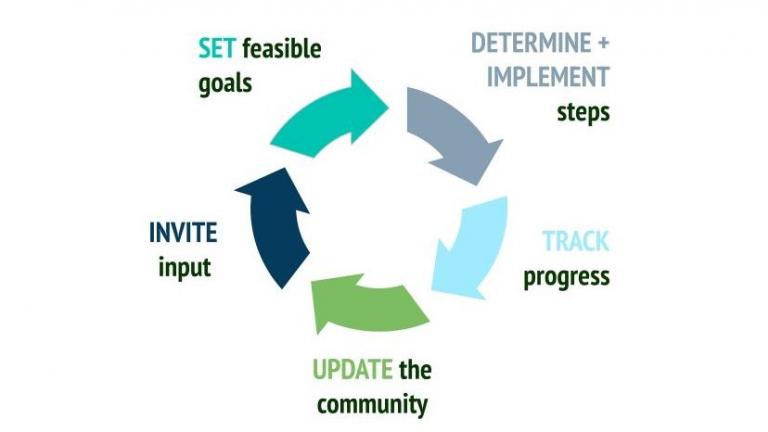
These past few months, the Student Sustainability Coalition (SSC) has been working with around 30 undergraduates, graduates, and postdocs to elevate the voice of the MIT community about what MIT's priorities on addressing the climate crisis should be. MIT is creating a new Climate Action Plan, which was originally written 5 years ago. As an institution that serves as a role model for science and has a tremendous amount of power and privilege, it is vital that in 2021, MIT take much more ambitious action than before.
Our proposal for MIT's climate goals focus on 6 key asks that students have deemed critical:
1) Educating students about sustainability and providing the tools for them to be a part of the solution.
2) Setting more ambitious and tangible on-campus sustainability targets, such as waste reduction goals.
3) Expanding MIT's engagement with the public sector such that MIT can use its resources to progress climate policy, locally (Boston/Cambridge area) and federally by incentivizing research surrounding policy/community engagement.
4) Creating a framework for MIT's engagement with the private sector to ensure that MIT is effectively holding companies they work with (i.e. research sponsors) accountable to meeting necessary sustainability and environmental justice standards.
5) Creating ethical and socially responsible investment standards for MIT's endowment, requiring increasing transparency and divestment from fossil fuels.
6) Accountability, diverse and democratic representation, and transparency in the process of creating, revising, and reporting progress on the Climate Action Plan going forward.
On Monday, February 22nd, the working groups presented in an open forum hosted by the Office of the Vice President for Research and the Climate Action Advisory Committee (CAAC).
We want your feedback! You may view our detailed reports and an executive summary in the Google Drive attachments. If you have thoughts or would like to endorse our proposal, please fill out the feedback form. If you have any questions or would like to meet with us, please feel free to shoot me (Jessica) an email at jnh@mit.edu.
Stay tuned for more events!






